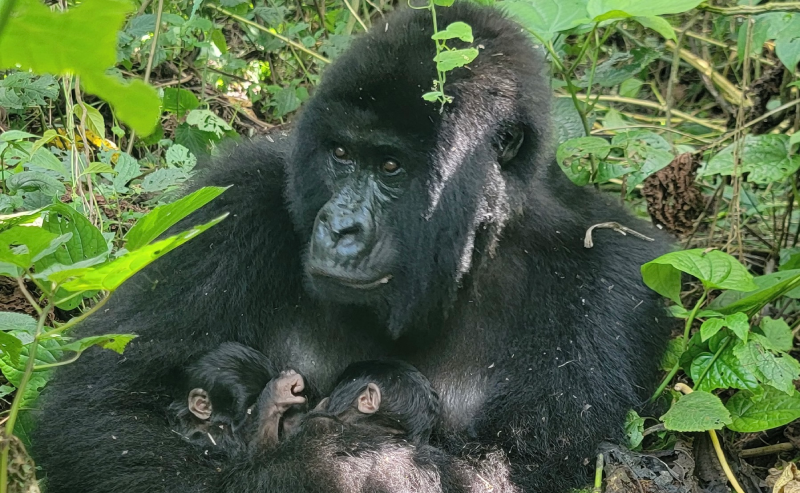
Support Gorilla Conservation >
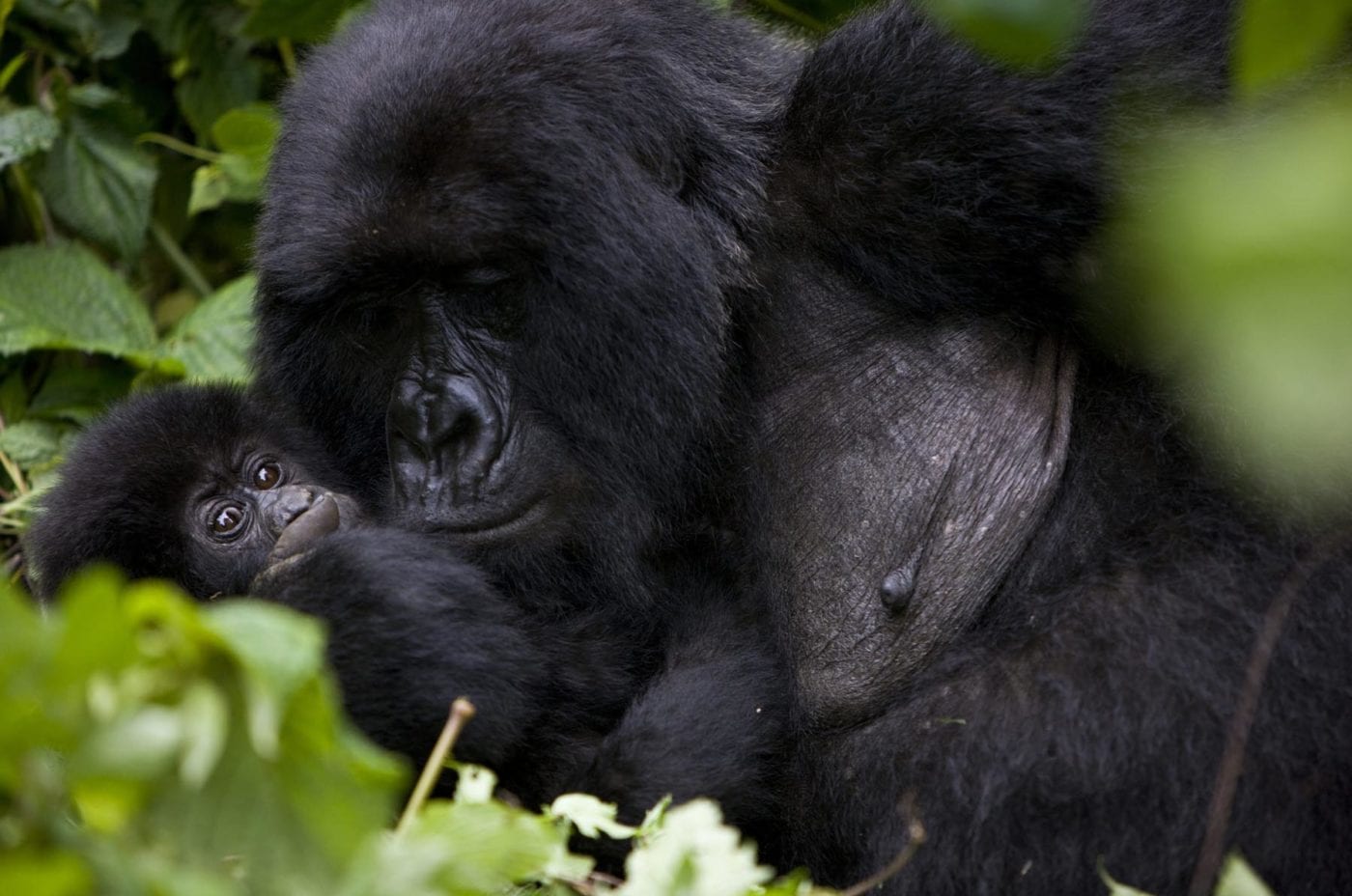
The Facts About This Magnificent Great Ape

Home » Wildlife » Primates » Mountain Gorillas » Mountain Gorilla Facts
Around 350 of the world’s estimated 1,075 wild mountain gorillas live in the resource-rich Virunga mountains, the exploitation of which threatens the species’ very existence. Far less abundant and more beautiful than any raw material, this majestic great ape is DRC’s real treasure.
The gorillas’ biodiverse rainforest environment is stratified into distinct specific vegetative zones based on altitude. Most of their time is spent near the base of the mountains, where vegetation grows more densely. The air throughout the mountain’s zones is moist and misty, leading them to be known as cloud forests.
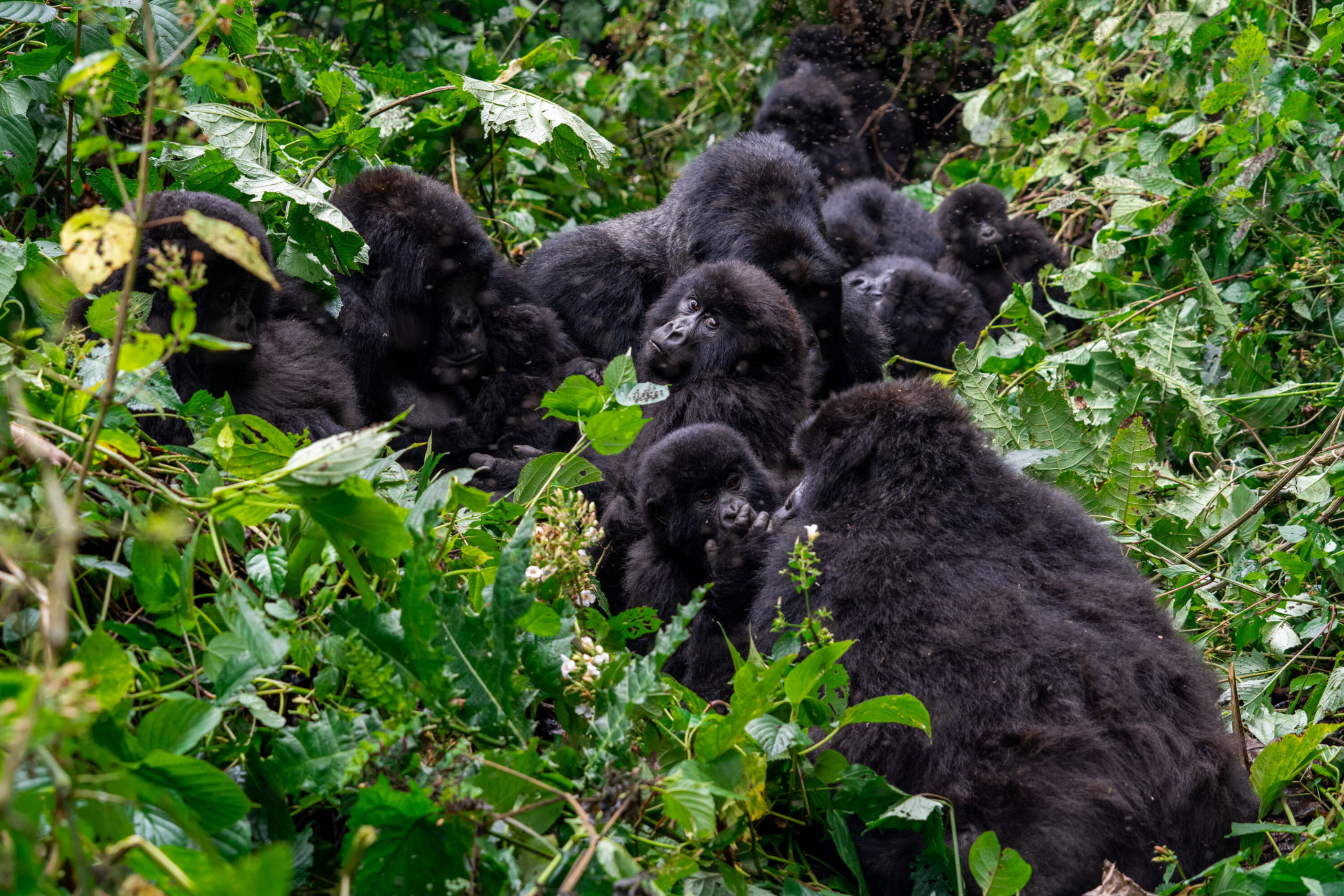
Over one third of the global population of mountain gorillas live on the lush slopes of the Park’s dormant volcanoes. Compared to their eastern lowland cousins, mountain gorillas have thicker hair, an adaptation which protects them against the sub-zero temperatures often encountered at altitudes of 7,000 to 14,000 ft (2,000 to 4,000 m).
Challenges to dominant silverbacks are met with impressive displays of strength and aggression, including charges, chest-beating, and vocal intimidation. Despite this, gorillas generally reside in a state of calm, subsist on a mainly herbivorous diet of roots, shoots, fruit, bark, and pulp, with about 0.1% coming from invertebrates.
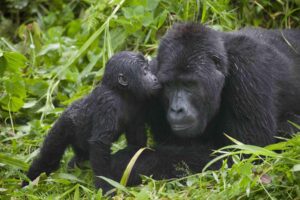
Like most primates, mountain gorillas are social animals. They live in groups of fascinating complexity called troops or bands, led by a dominant alpha male known as a silverback. The silverback protects its members and directs troop activities such as nesting, feeding and migration between seasonal feeding areas.
The streak of silver hair, after which mature males are named, develops following adolescence. Gorillas walk on their knuckles, have dark brown irises encircled by black rings, and possess unique nose prints. Adult mountain gorillas, as well as having thicker and longer fur, tend to be smaller than other subspecies.
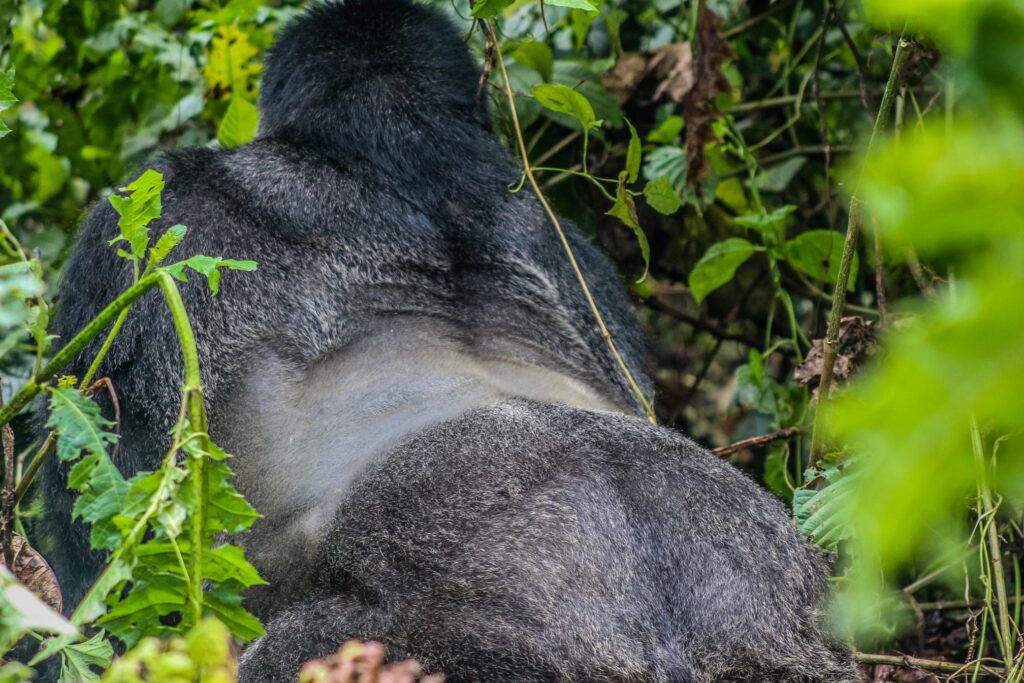
After nearly nine months of gestation, infants enter the world weighing just 4 lbs. From four months they begin clinging to their mothers’ backs, remaining there for two or three years. Despite beginning life so small, adult males typically weigh 430 lbs and can stand five feet tall.
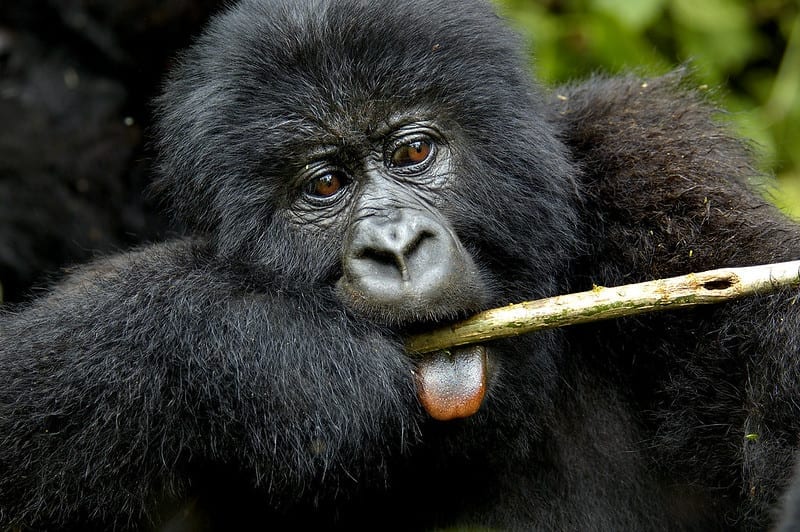
A mountain gorilla’s mainly plant-based diet is made up of 142 varieties of leaves, stems, shoots, and fruits.
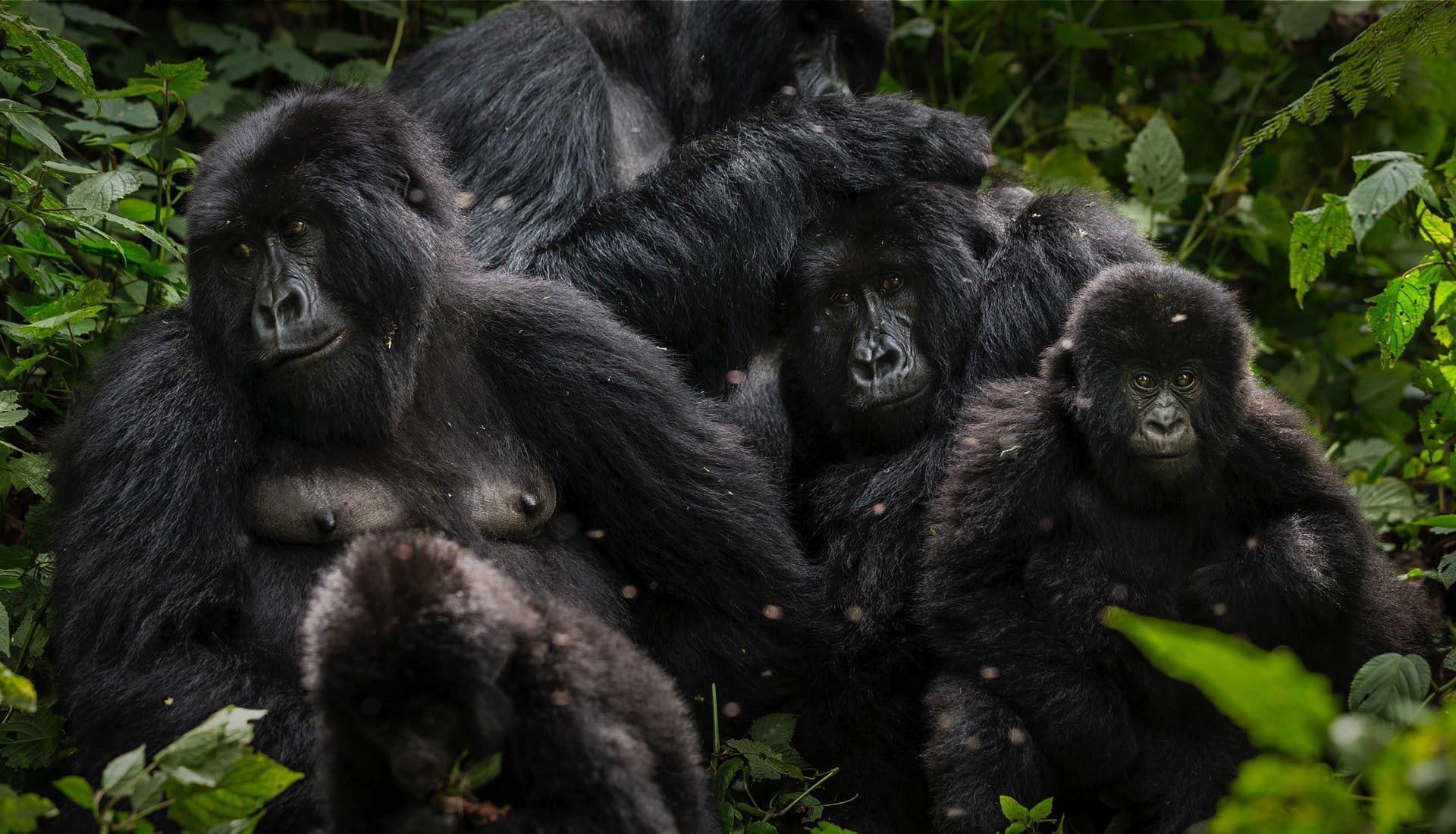
Mountain gorillas normally live in groups known as troops, which are led by a dominant silverback. The largest group ever encountered was 65 members strong.
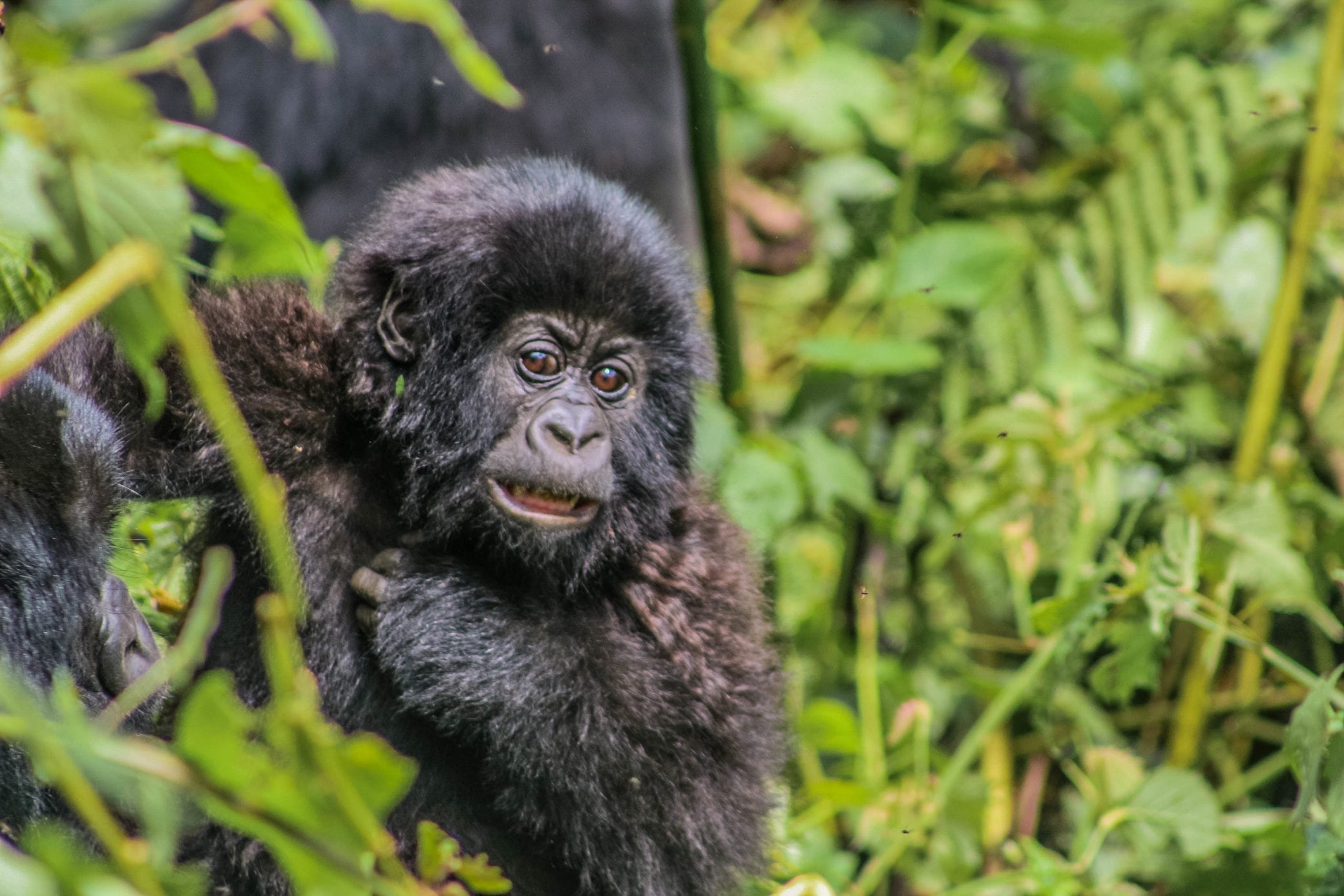
Gorillas are incredibly communicative creatures. They use facial expressions, calls, postures, and gestures to convey their intentions and feelings.
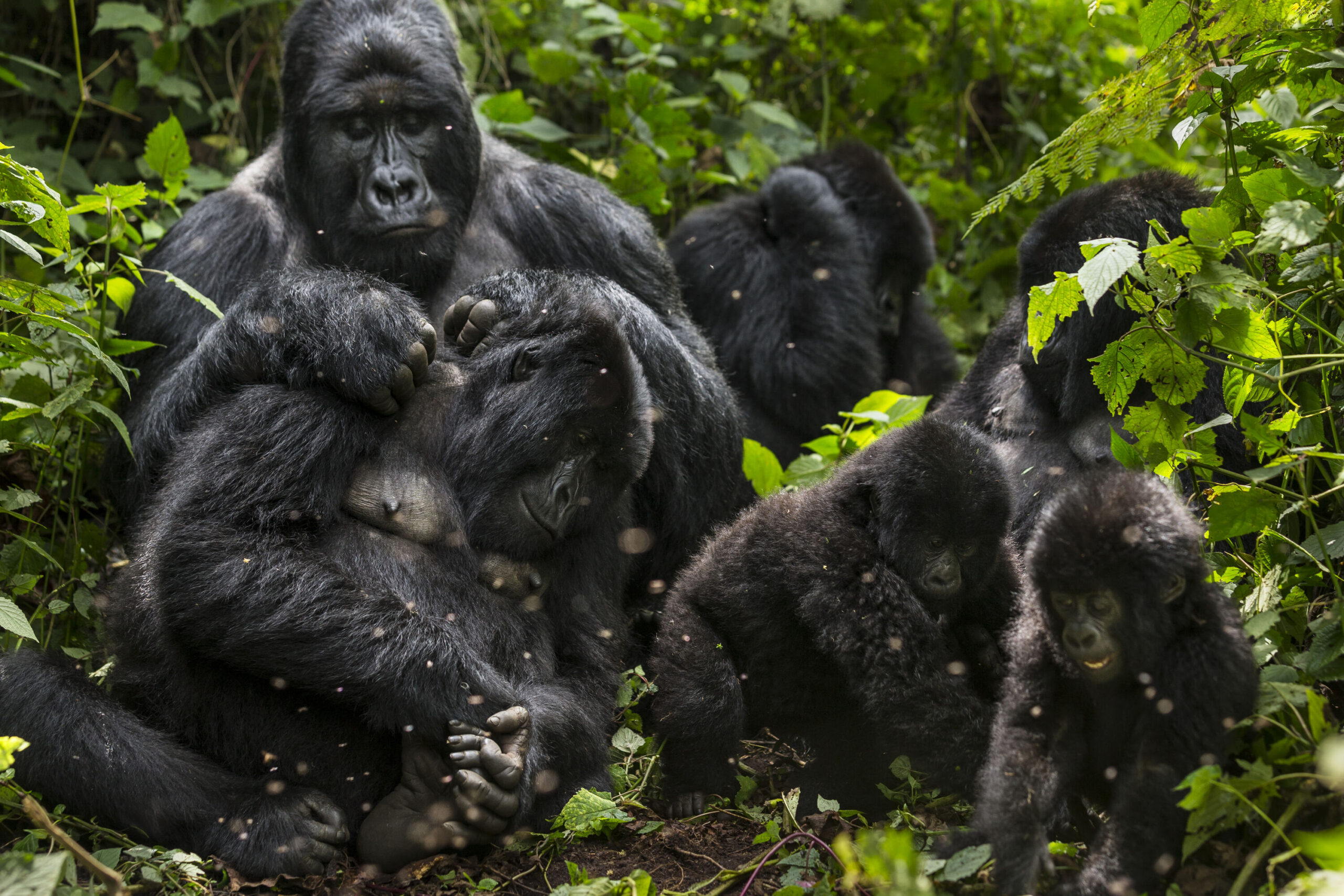
Despite their reputation as aggressive and dangerous, mountain gorillas are known to be emotionally intelligent. They have been observed grieving lost family members, touching noses to greet one another, and singing when a particularly lush nesting site is discovered.
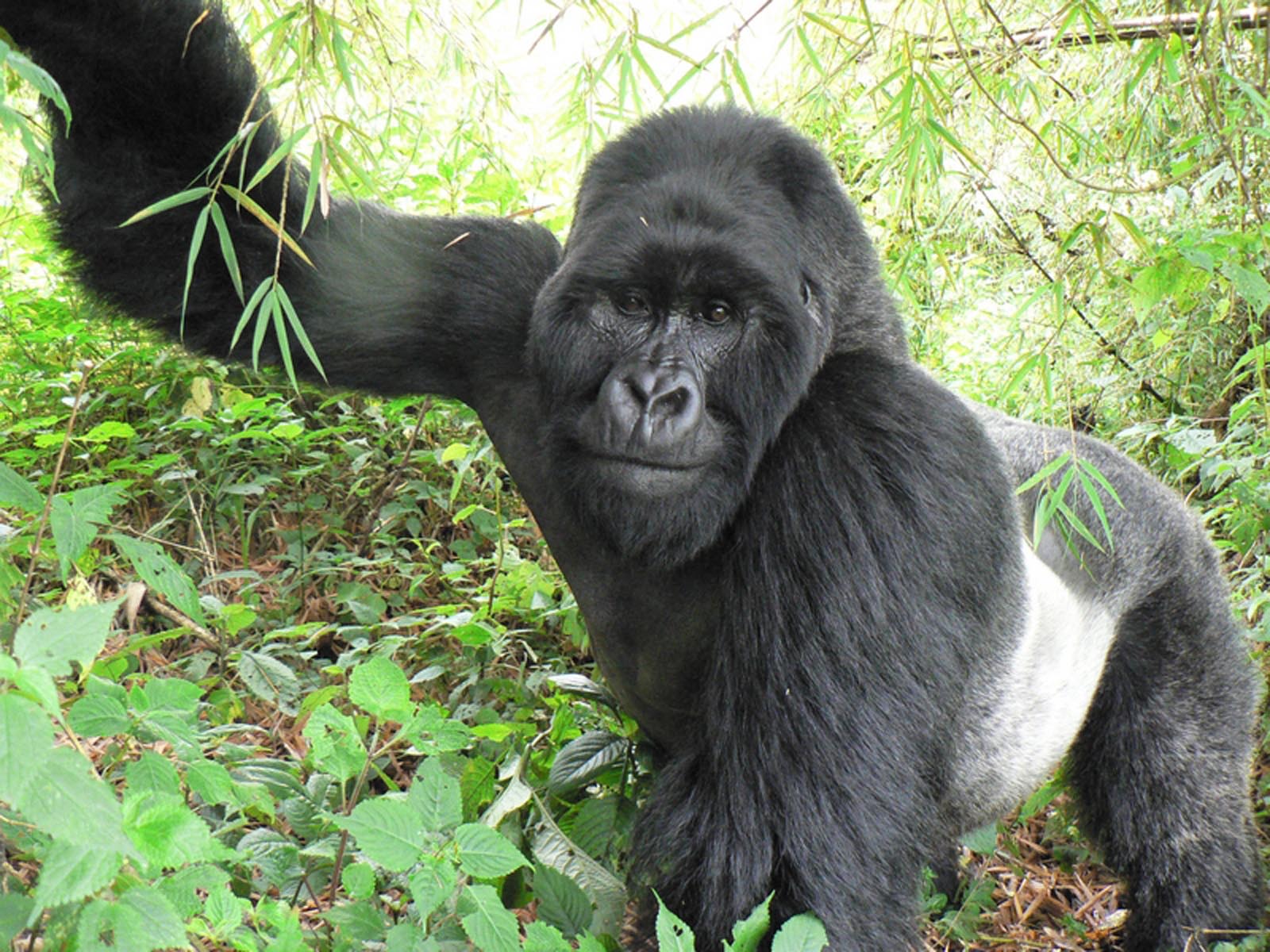
Gorillas regularly migrate between troops, a behavior which prevents inbreeding and allows subordinate silverbacks the opportunity to lead a troop and thereby mate with females.
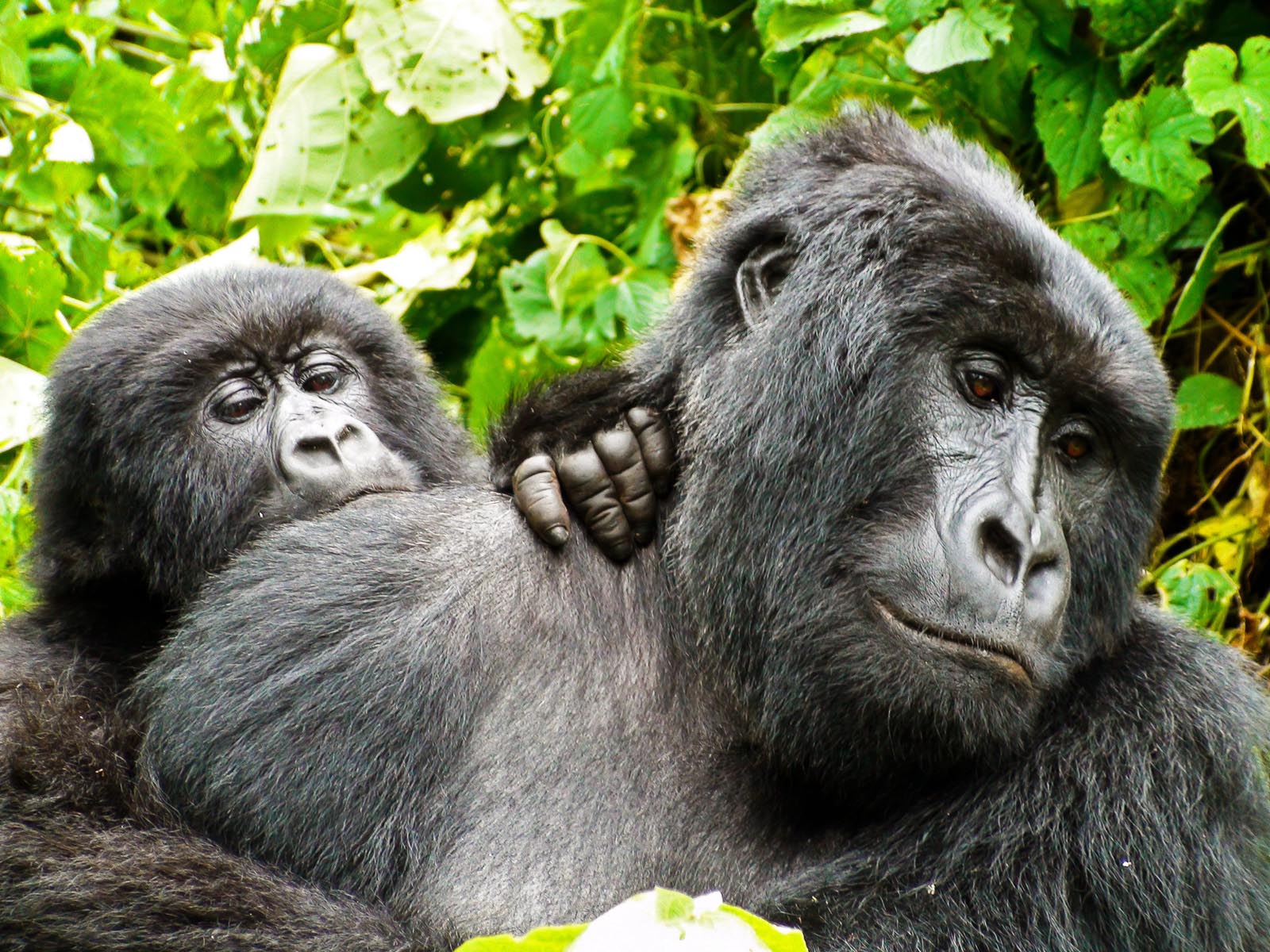
Gorillas can live for up to 40 years in the wild. In captivity, they have been known to reach 50 years of age.
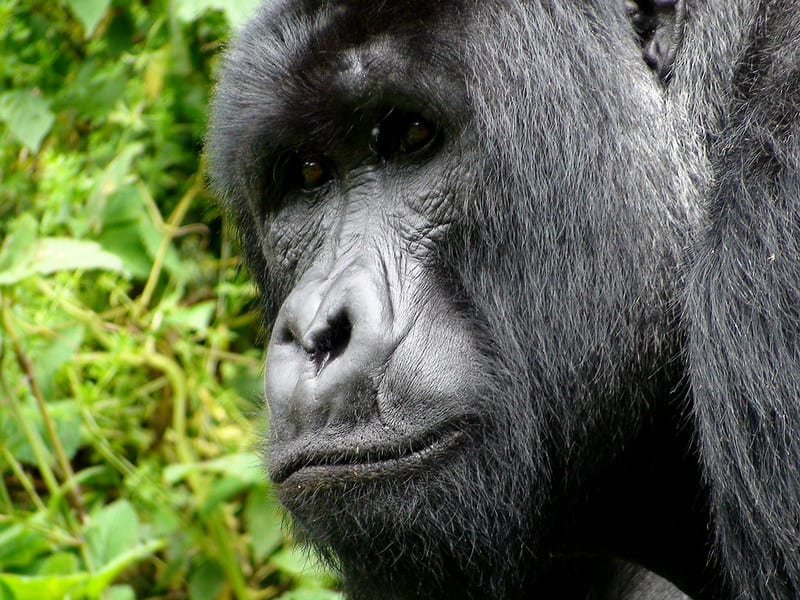
Gorillas can be identified by observing an unlikely part of the head, with each individual having a unique noseprint. The species is distinguishable from most other kinds of primate by having evolved without a tail.
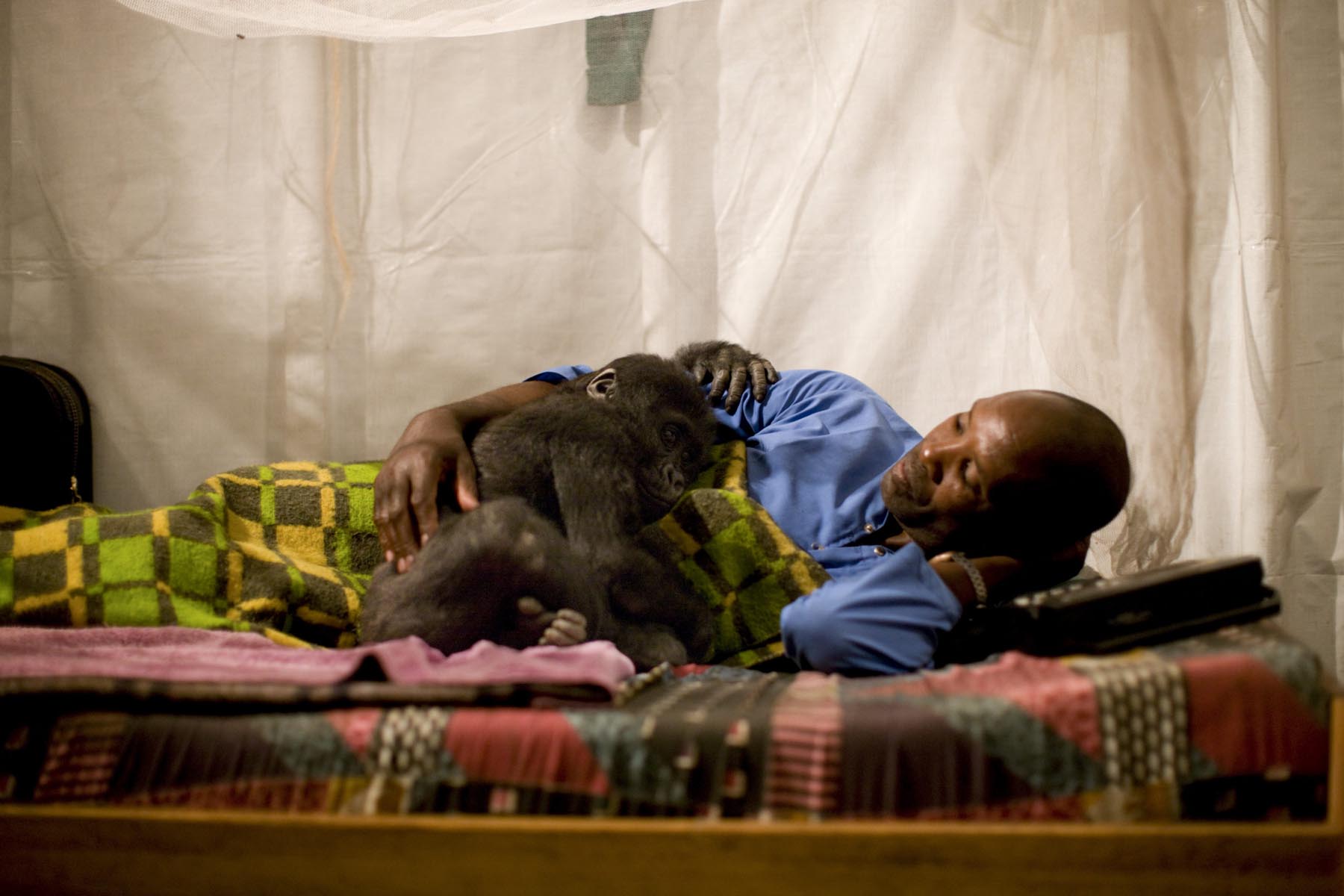
Gorillas are one of our closest relatives, with humans sharing 98.3% of our DNA with the primate.
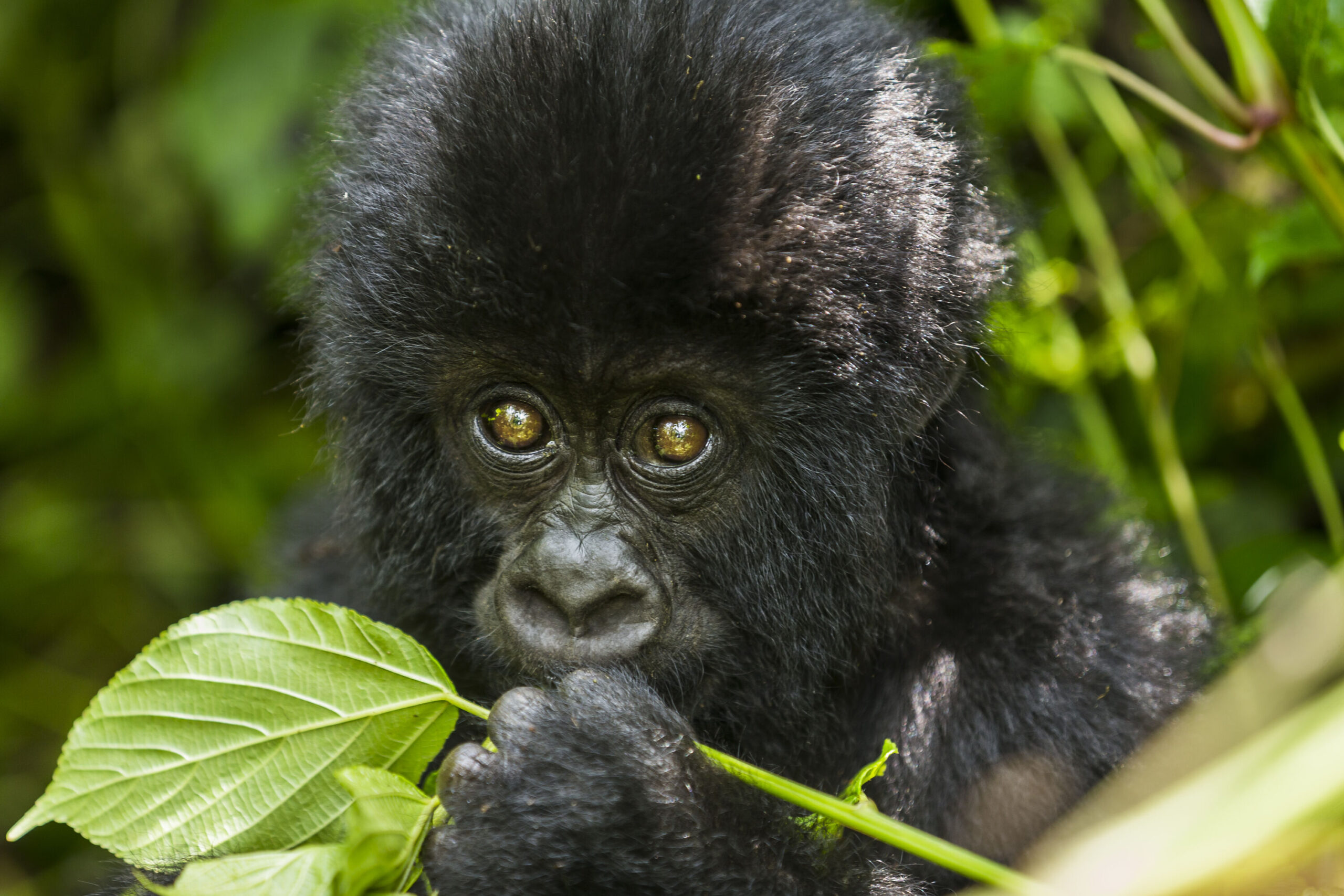
In 1997 there were as few as 320 wild mountain gorillas. Conservation efforts have increased numbers to around 1,000 individuals, lifting the animal out of the IUCN critically endangered category into endangered.
Your support ensures that communities and nature can thrive together for the next 100 years.
Celebrate 100 years of Virunga with our commemorative anniversary book – every copy helps protect Africa’s oldest national park.
Shop Now
Indulge in our collection of artisan chocolates, crafted from the finest cacao grown in the fertile volcanic soils of the Virunga region.
Shop Now
Discover the beautiful handcrafted products made by the talented women artisans of Virunga’s Women Workshop.
Shop Now
Q. Why are mountain gorillas considered endangered ?
A. Mountain gorillas, with only about 1,075 individuals remaining in the wild—roughly 350 of them in the Park—face threats from habitat loss and degradation, human encroachment into their forest homes, and snares or traps set for other animals, which can injure or threaten them.
Q. What do mountain gorillas eat daily?
A. They are largely herbivorous—eating stems, leaves, bamboo shoots, fruit, and bark.
Q. Do mountain gorillas have natural predators?
A. Natural predation is rare; their greatest threats come from humans and human-related pressures.
Q. How intelligent are mountain gorillas?
A. They are highly intelligent. They show complex social behaviors, can use tools or signs in some cases, and respond emotionally to social situations.